Like most other car enthusiasts, I’ve looked for ways to justify buying and selling cool vehicles often. I thought that as long as I turn a profit, fixing up cars would be a great side hustle. So I did a bunch of research and unfortunately, it’s not quite that easy.
4 is the most common number of cars you’re allowed to sell per year without a license. Every state or province has a different limit. Technically, you aren’t allowed to sell any car to purposely make a profit anywhere in North America. These numbers only apply to cars that are registered in your name.
The rules change based on your location but one thing that everyone agrees on is this: If you’re planning on buying a car strictly to make a profit when you sell it, you need a dealer’s license. That overrides any allowable number of cars that might be listed by a state or province. Check out the limits for each location in the table below.
How many cars you can sell in every state/province:
| State or Province | Number of cars (Within a 12-month period) |
|---|---|
| Alabama | 4 |
| Alaska | 5 |
| Arizona | 6 |
| Arkansas | 4 |
| California | 5 |
| Colorado | 4 |
| Connecticut | 4 |
| Delaware | 4 |
| Florida | 2 |
| Georgia | 4 |
| Hawaii | 2 |
| Idaho | 4 |
| Illinois | 4 |
| Indiana | 12 |
| Iowa | 6 |
| Kansas | 5 |
| Kentucky | 5 |
| Louisiana | 4 |
| Maine | 5 |
| Maryland | 2 |
| Massachusetts | 3 |
| Michigan | 4 |
| Minnesota | 5 |
| Mississippi | 4 |
| Missouri | 6 |
| Montana | 4 |
| Nebraska | 4 |
| Nevada | 3 |
| New Hampshire | 4 |
| New Jersey | 0 |
| New Mexico | 4 |
| New York | 5 |
| North Carolina | 5 |
| North Dakota | 0 |
| Ohio | 5 |
| Oklahoma | 0 |
| Oregon | 5 |
| Pennsylvania | 4 |
| Rhode Island | 4 |
| South Carolina | 5 |
| South Dakota | 5 |
| Tennessee | 5 |
| Texas | 4 |
| Utah | 2 |
| Vermont | 11 |
| Virginia | 5 |
| Washington | 4 |
| West Virginia | 5 |
| Wisonsin | 5 |
| Wyoming | 2 |
| Alberta | 0 |
| British Columbia | 5 |
| Manitoba | 4 |
| New Brunswick | 0 |
| Newfoundland | 0 |
| Nova Scotia | 3 |
| Ontario | 0 |
| Prince Edward Island | 0 |
| Quebec | 0 |
| Saskatchewan | 0 |
The locations with a “0” limit don’t offer a clear number of cars you’re allowed to sell. They just stick with the rule of not buying and selling for the purpose of earning a profit. The “0” doesn’t mean you aren’t allowed to sell your personal car without a license!
What is curbsiding?
Curbsiding (also known as “curbstoning” or “curbing”) is the act of selling a car without a dealer’s license or registering it in your personal name. The curbsider acts as a middle man between the previous owner and the current buyer. They don’t show up on paper as a registered owner between the others.
Many places don’t have a set limit on how many personal cars you’re allowed to buy and sell per year, but they’re probably keeping track of what you’re doing. If you sell 20 “personal” cars per year, they’ll know about it – and they’ll probably consider you a curbsider, even if you’ve registered the cars properly before selling them.
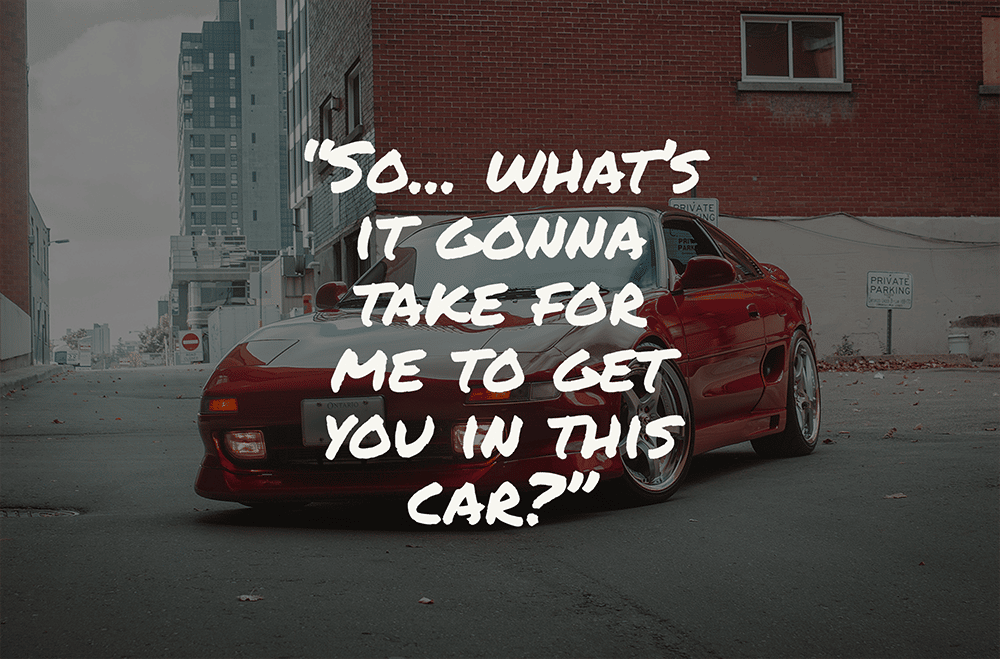
Where did the term curbsiding come from?
The term curbsiding is actually quite literal. Sellers that are breaking this law will often do business on the side of the road, a parking lot, or a residential driveway. So in a sense, a “curbside dealer” is just someone without a legal dealership lot. Regardless of where they’re doing business, they’re acting as a dealer but don’t have a proper dealer’s license.
Reasons why people curbside rather than sell legally
You can get in real trouble if you get caught selling cars without a dealer’s license. So why do people do it? Not surprisingly, it’s usually all about the money.
- Avoid paying taxes
- Remain anonymous
- Misrepresent cars
- Avoid the hassle and cost of a license
If you think about it, curbsiding is a form of tax evasion. By not registering the vehicle in their name, they aren’t paying tax on it. Saving the sales tax might make or break their profit margin.
It also allows them to remain anonymous. On paper, they don’t exist. This means the buyer has no recourse if something goes wrong. They can’t find the seller because they’re gone in the wind. Curbside sellers often disappear after the sale.
People that handle business in a shady manner like this tend to also be the type to misrepresent the cars themselves. Salvaged titles, rolled-back odometers, and hidden accident histories are all common scenarios when buying from a curbsider.
So unless you want to get grouped in with people like that, you’re going to want to follow your local laws.
Penalties for getting caught selling cars without a license
The penalty for getting caught selling cars without a license ranges from a monetary fine to jail time. It seems as though many government agencies are cracking down on this and using large penalties to send a message to everyone – don’t sell cars for profit without a license.
Here in Ontario, the minimum fine for an individual is $2,500. The maximum is $50,000 and/or up to 2 years of jail time. Source: omvic.on.ca
That’s no joke. Still think it’s worth saving some money on taxes? I sure don’t!
Back in 2019, a mechanic in Windsor, ON was fined $50,000 for selling vehicles without a license. A man in Mississauga had been charged with curbsiding 2 separate times but didn’t pay the fines. The 3rd time he was charged, they sent him to jail for 32 days. A Toronto man was sent to prison for a year and had his company fined $375,000.
Clearly, they’re trying to use people as examples by throwing some hefty punishments their way.
Can you make good money flipping cars?
There’s a reason why some people are willing to risk their freedom by selling cars without a license – it can be very profitable. Cars tend to be the 2nd largest purchase people make in their lives, aside from their house. They’re expensive. So treating them like stocks (or any other investment) by buying low and selling high can certainly earn you some money.
Because cars are such a big purchase for most people, the government is very serious about regulating the industry. They want to help people avoid losing their life savings as much as possible.
You could make great money flipping cars but if you do it illegally, it’s most definitely not worth the risk of getting in trouble. Doing it legally, however, might lower your profit margins and increase your effort – but it can still provide a great income.
How to do it right – buying and selling cars legally
Regardless of what state or province you live in, you’re going to have to get a dealer’s license if you want to be able to sell cars for a profit. Depending on where you live, this process can be a simple matter of paperwork or more of a headache.
Here in Ontario, you need to do all the paperwork, pay the licensing fee, take a dealer training course, and provide proof of a lease for an approved car lot. So no, you won’t be able to register your business and license to your home address.
Someone that already owns some type of automotive business (like a garage) has an advantage here. They’re already leasing a commercial property and as long as it’s approved by OMVIC (or whatever your local governing body is), they can register their license there. For everyone else, you’ll need to find a spot first before you can sell cars legitimately.
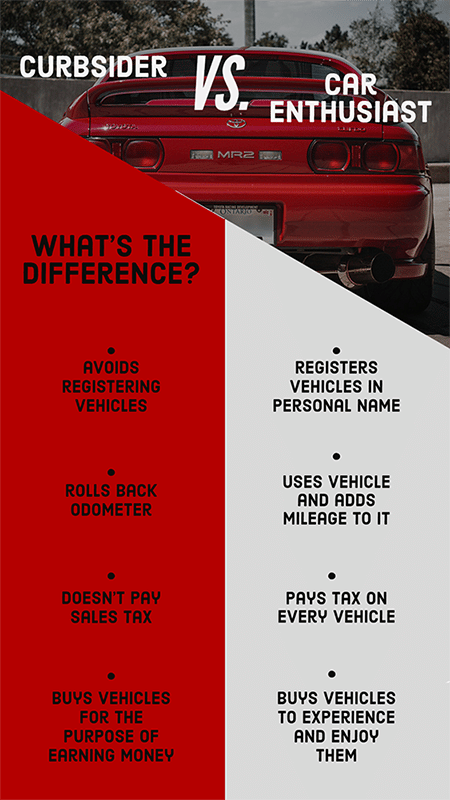
Now, if you’re just someone that enjoys switching vehicles often and don’t necessarily want to lose money on them, I don’t think you’ll have too much to worry about. When a vehicle is registered in your name, and you’ve driven it enough to put a bunch of mileage on it, that’s certainly considered a personal vehicle. That shouldn’t raise any red flags.
For example, my wife bought her Toyota Tacoma a few years ago for around $5,000. The used market for Toyota trucks has gone crazy recently and trucks like hers can be seen listed online for more than double that.
If she were to sell it right now, she wouldn’t get in trouble for it – she’s owned it for years and put over 100,000 km on it. Clearly, she didn’t intend to make a profit from the sale even if that’s what ends up happening.
If you sell your car for more than you paid for it, there are other explanations aside from curbsiding:
- You were in the right place at the right time and got a good deal when buying
- The market for used vehicles changed and now your model is worth more than before
- The buyer of your vehicle really wanted it and happily paid good money for it
I can’t imagine anyone having a problem with any of those scenarios. As long as it doesn’t happen repetitively, it won’t attract any attention. The problem stems from purposely buying and selling vehicles for the sake of earning money. That’s when you could potentially run into some trouble.

Tim is the creator of Canadian Gearhead. His experience with auto detailing and working for Toyota shows through all of the articles posted here. He runs the Canadian Gearhead site and YouTube channel full-time now and currently owns a 2007 4runner, 2006 Tacoma, and 1991 MR2. Read more about Tim:

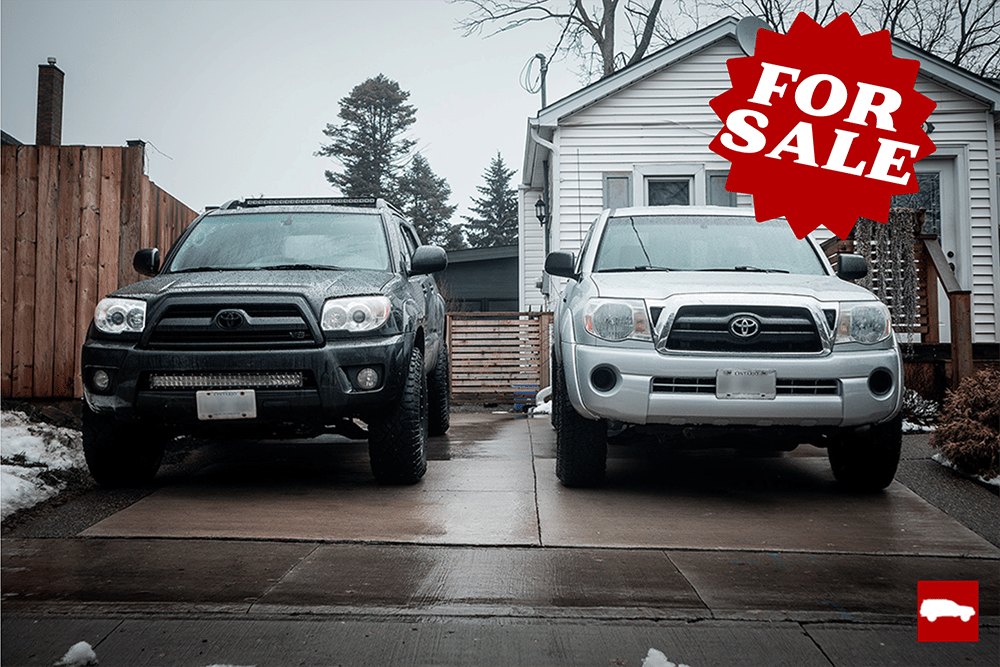

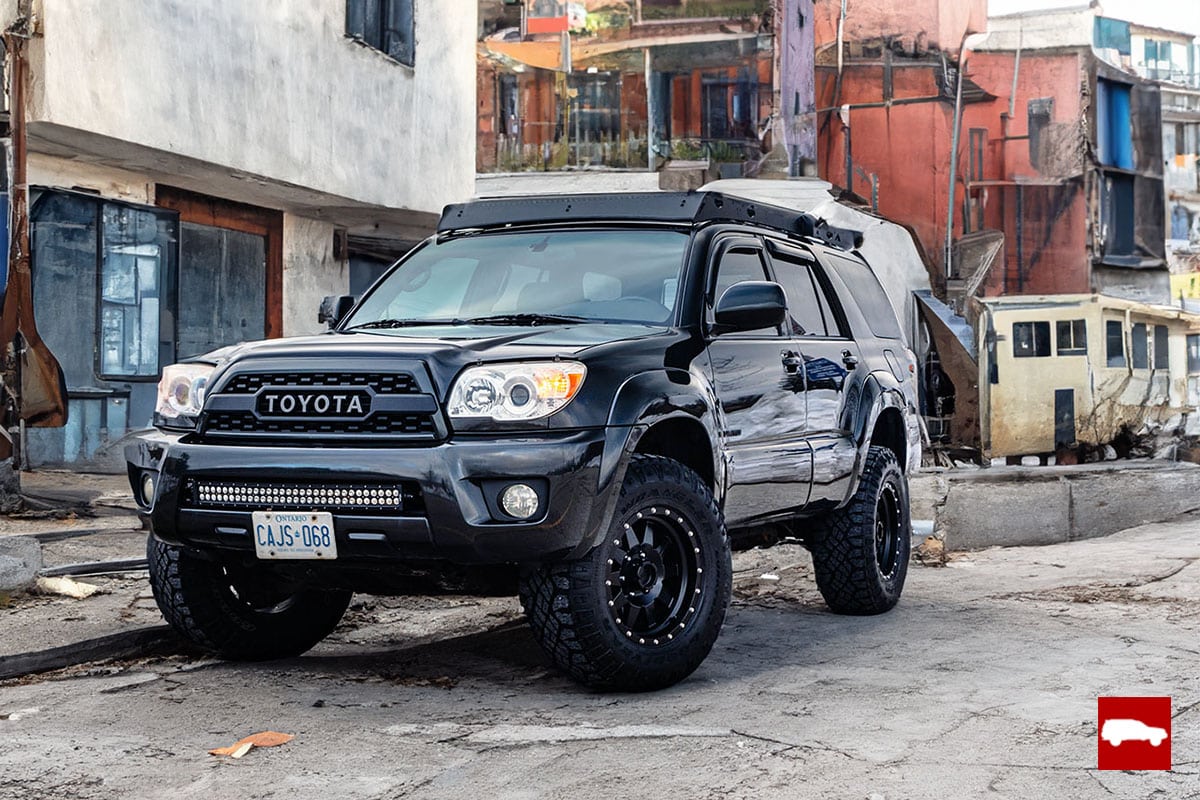
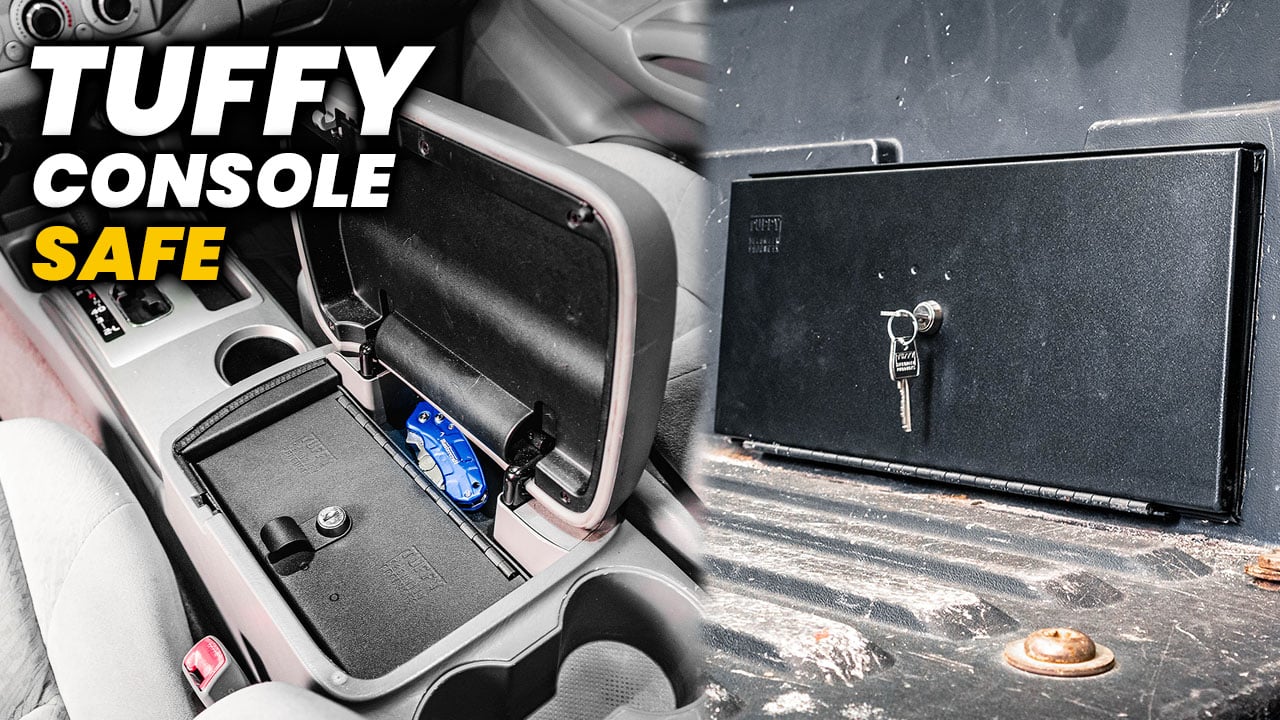
Leave a Reply